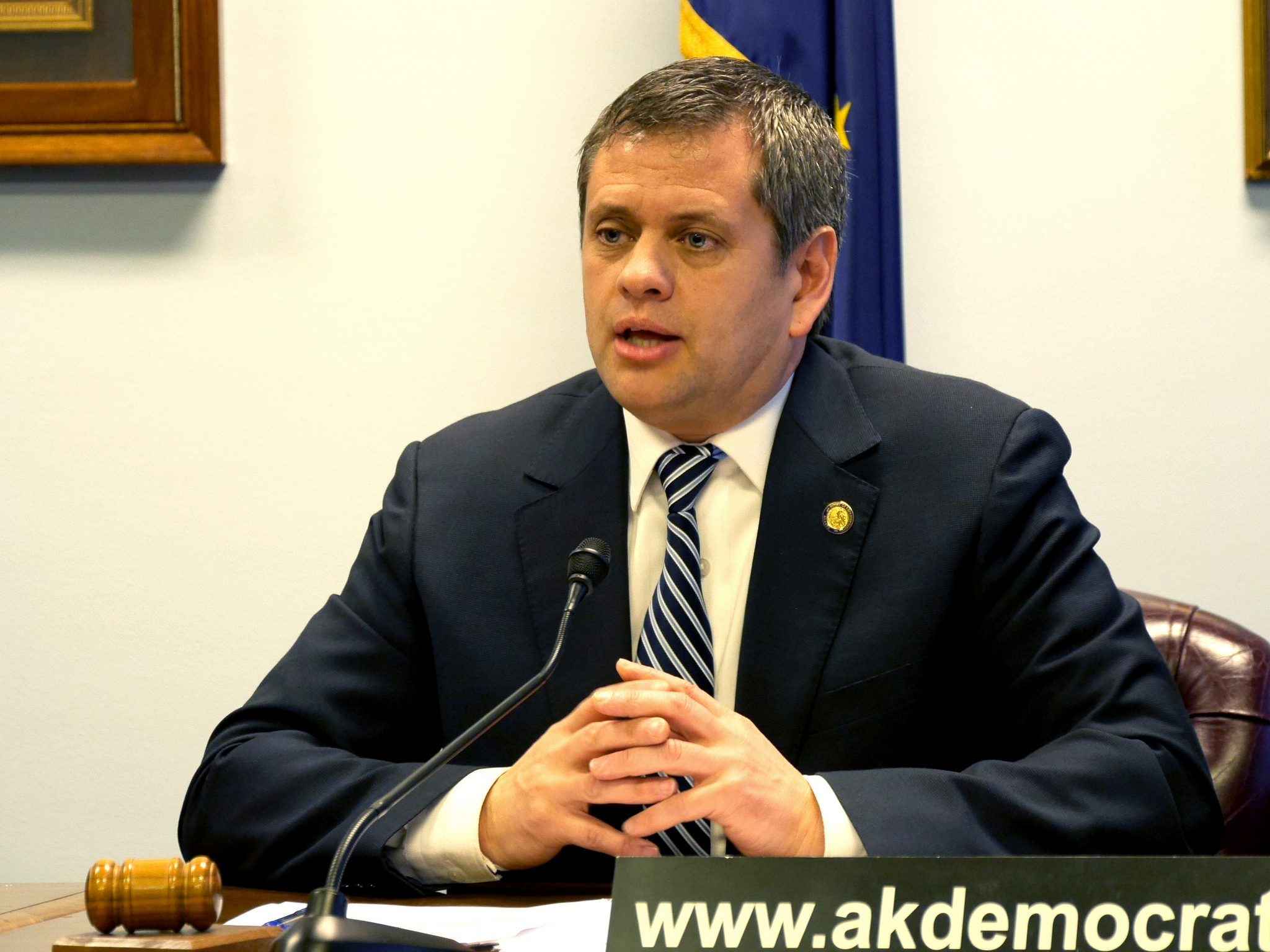
We’re talking with legislative leaders this week as part of a series on the start of the legislative session.
Anchorage Representative Chris Tuck is the minority leader in the Alaska House of Representatives. He questions whether the Governor’s budget proposal is fair for average Alaskans.
TUCK: One of the concerns that I have is a working family of four, making sure that they’re not taking the brunt of the burden and that when we look at fish taxes, when we look at oil taxes, when we look at mining taxes, and looking at all those other things, just weighing it in perspective. And so I just want to make sure that the working class isn’t fully burdened with the responsibility.
TOWNSEND: When you say “fully burdened,”… where is your cutoff? When does the middle class have to contribute, or at what level would you be comfortable with?
TUCK: Well, we’re all in this together. Everybody’s going to have to pay. But the way that the governor’s plan is right now, you take the owner of a wealthy utility, and you compare what that person’s going to have to pay out of his pocket versus a working family of four, it’s really bent on one direction. And so the governor’s plan is a good start. It is courageous. He does have inclusions from everyone. But, just for example, mining taxes haven’t been looked at in decades, and all he plans on generating from that is an additional $12 million. But you look at alcohol taxes alone, and that’s $40 million. So we’re going to be bringing in over three and a half times more in alcohol taxes than we are in mining taxes. And if we’re going to open up mining taxes, we need to seriously look at, “Is this going to be fair in comparison to where we’re gathering money from people in other ways?”
TOWNSEND: When you’re talking about the total package and raising revenue, what about the budget cuts to fill this $3.5 billion budget gap? What else do you think needs to be looked at as far as cutting?
TUCK: Well, there’s a lot of mega projects that Alaska, right now, can’t afford the five mega projects going forward. I know right now, for example, the Susitna Dam. It’s something I’ve always supported. I support hydro projects. That is a renewable energy in my mind. But then, when you look at some of the power generation projects that we have going through the state, especially in Southcentral Alaska, a lot of natural gas facilities just got built, so maybe now’s not the time to do that since the price of gas is so low, and we’ve already met the needs, with a little bit of extra capacity, in the most recent years.
TOWNSEND: Democrats have introduced dueling bills: One to limit the session to 90 days and one to move it back to 120 days. What’s your opinion? Is 90 days long enough?
TUCK: Obviously, last year 90 days was not enough. There are questions about whether this year 90 days is going to be enough. We have a constitutional limit of 120 days. I can tell you that when I first got elected, I fell underneath the 90 day session, and it was the first year that that that initiative took action. And it’s like cramming for finals every day of the week. I mean, you’re really moving under a 90-day session, and it is difficult to build relationships and to have the necessary dialogue to have good policy. So, there’s a balance. I like that its statute is 90 days, but if we need to go over, we do have it for 120 days. Again, we’re a nonbinding caucus, so that’s the reason we have different opinions coming from our caucus because people vote their conscious on that. So, it all depends on if we can get more work done in the interim; I do support the 90 days.